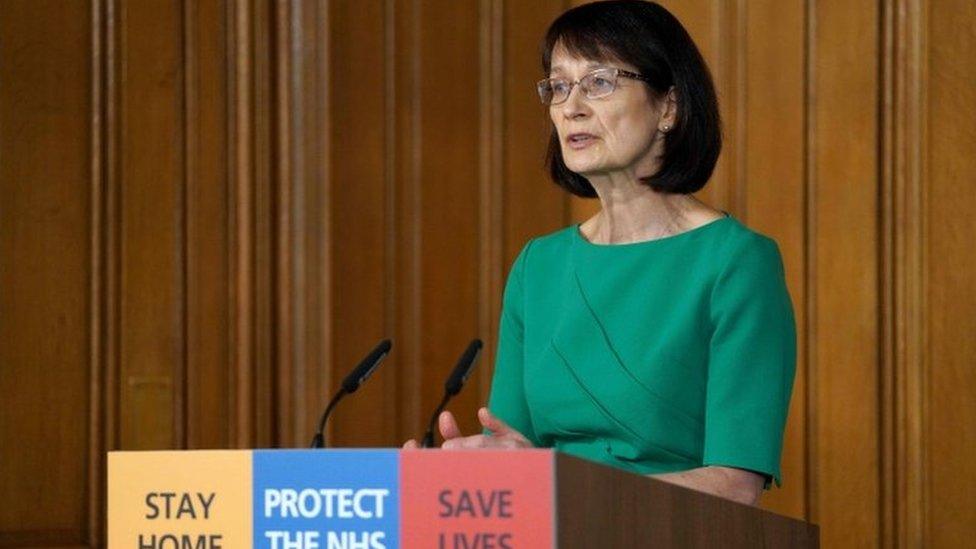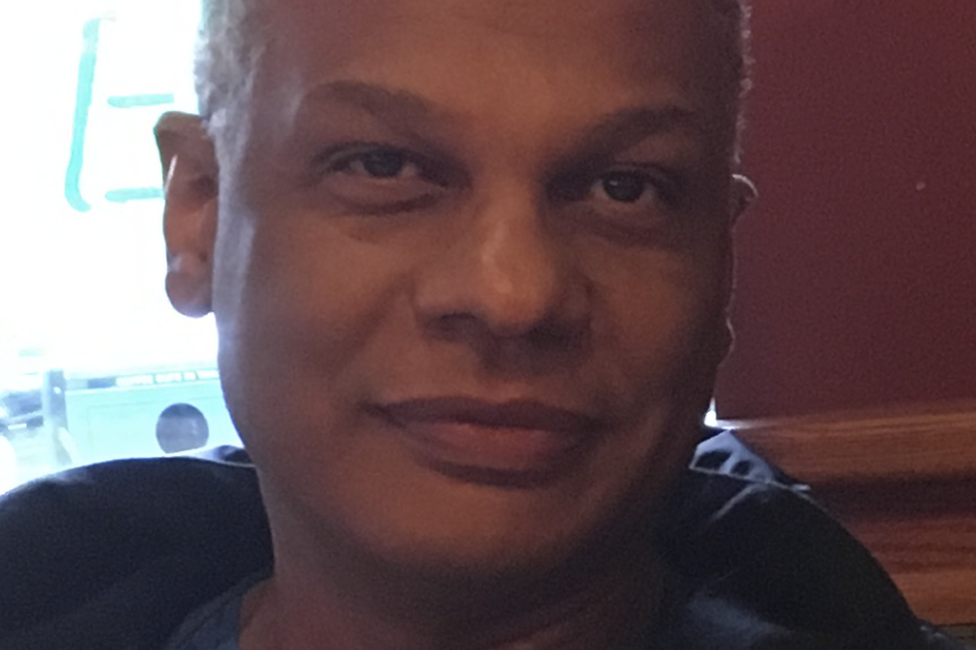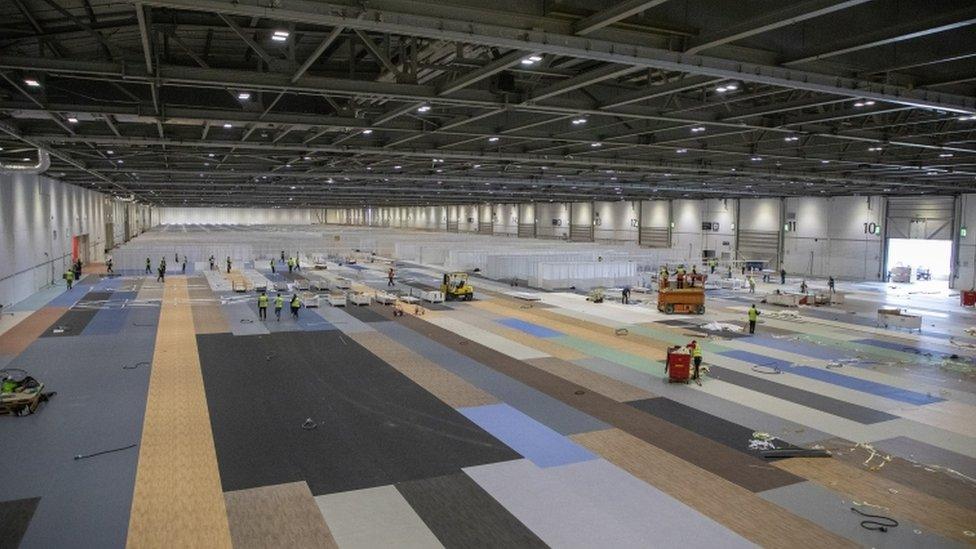Newspaper headlines: 'Normal life' six months away and NHS 'hero' dies
- Published

Dr Harries said restrictions would be reviewed every three weeks
Most papers highlight the warning - made at Downing Street's daily briefing on Sunday by the deputy chief medical officer for England - that life in Britain will not return to normal for six months.
The Times, external says Dr Jenny Harries' remark makes it "almost inevitable" that the government will extend the restrictions beyond the three weeks initially announced.
The Daily Telegraph, external agrees, noting in its leader column that the rising death toll "will convince the country that more time is needed".
But, it says, people "need to be told something more than things are going to get worse if we are to get through this".
The Daily Mail, external says Housing Secretary Robert Jenrick "faced a rough ride" over No 10's handling of the pandemic when he appeared alongside Dr Harries, following complaints about the slow increase in testing and the lack of personal protective equipment for medical staff.
A number of papers feature an image of Amged El-Hawrani - one of the first British doctors to die with the virus.
According to the Guardian, external, his death - and that of another doctor, Adil El Tayar - has "intensified pressure" on ministers to accelerate the supply of protective equipment to frontline staff.
The Daily Mirror, external says doctors are "pleading" for more kit following the deaths of what the paper calls "NHS Heroes".
The Independent website, external says a new national supply line is due to begin operations "within days", after NHS officials admitted the existing system had been "overwhelmed" by demand.

Dr El-Hawrani, who worked at Queen's Hospital Burton, died on Saturday
The Daily Telegraph, external reports that a major NHS Trust in London has conceded that intensive care for infected patients is now being limited to those "reasonably certain" to survive.
It says Imperial College Healthcare is selecting fewer and fewer marginal patients for ventilator treatment because so many serious cases require a fortnight on the machines.
The Daily Mail, external says the trust has confirmed that the measure has "not being taken due to a lack of capacity". The Telegraph thinks it is the first admission that NHS doctors have "significantly tightened" their intensive care treatment criteria since the start of the outbreak.


The Financial Times, external says thousands of airline cabin crew grounded by the pandemic are being asked to work at the new temporary field hospitals being built around the UK. It is thought those who volunteer will be "changing beds and doing other non-clinical tasks".
As some airlines prepare to ask the government for financial support to help them weather the crisis, the FT's leader column, external argues that one of the consequences of the pandemic "must be a redrawing of the relationship between business and society".
It says the virus is putting responsible capitalism to the test - and state support demands that business plays its part as a corporate citizen.

The ExCel Centre in east London is being turned into a temporary hospital
The Daily Mirror, external is one of several papers to print a photograph of the former Labour leader, Lord Kinnock, sitting on his doorstep talking to his son in a chair a few feet away.
Writing on Twitter, Stephen Kinnock says he and his wife visited his parents for a "socially distanced" celebration of his father's 78th birthday.
The Sun, external says South Wales Police responded to the Labour MP's message by advising him the trip was not classed as essential travel. Mr Kinnock said he had to deliver some necessary supplies and "was off" after staying long enough to sing Happy Birthday.